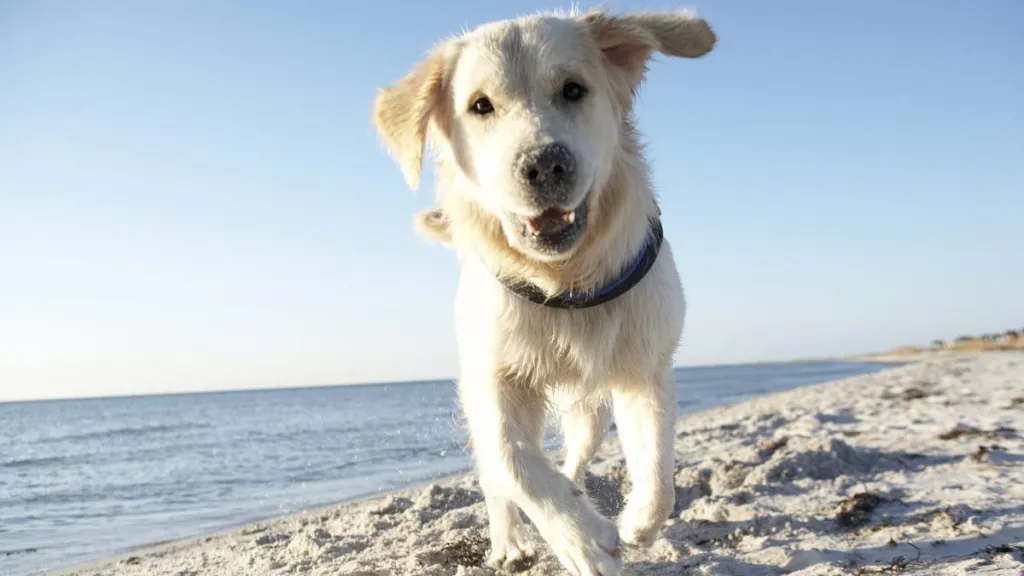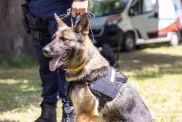Summer days are upon us, and one of the most fun ways to take advantage of the weather with your dog is to visit the best dog-friendly beaches. Here are ten safety tips that will help you make your beach visit with your dog fun and accident-free.
Sun, surf, and safety tips for dogs at the beach
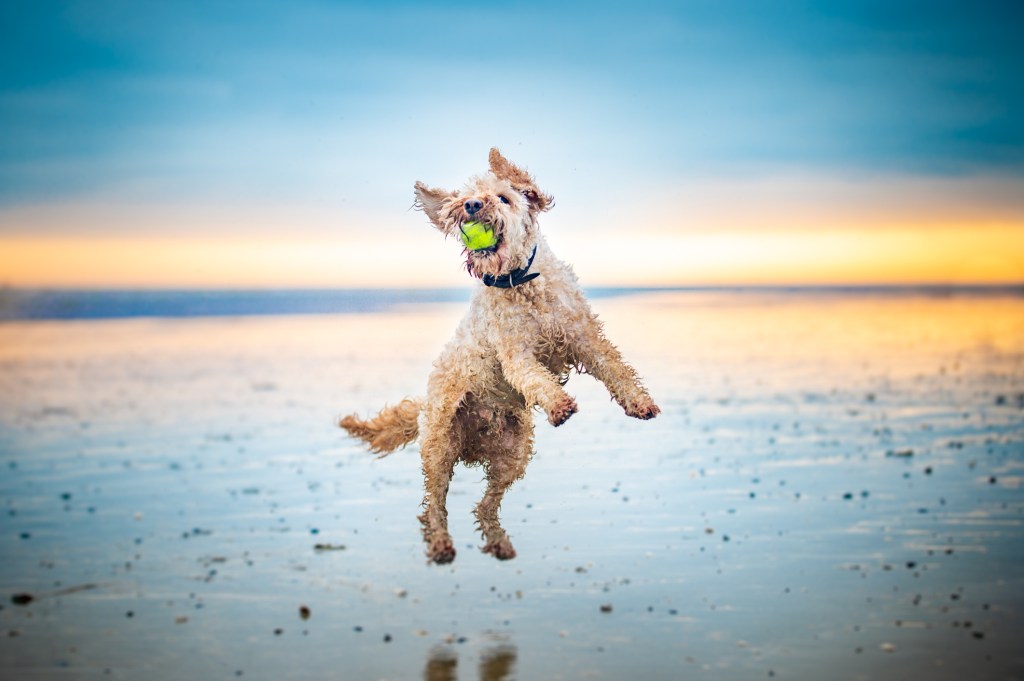
Spending time at the beach with your dog is one of the great pleasures of the warmer months. While these sun-soaked days can be the highlight of the entire year, they also present potential hazards that require careful planning and vigilance. Even if your dog is friendly, a strong swimmer, and obedient to your commands, unexpected situations can arise rapidly. Maintaining close supervision of your pet at all times at the beach is crucial. Your dog’s safety should be the top priority.
Socialization is Key
If you ever plan on being in off-leash situations with your dog while you’re in public, you must ensure your pup is well-behaved with other people and animals. Even among friendly dogs, misunderstandings can happen. Play can get too aggressive or there can be fights over toys. You never know what could go wrong at the beach.
If your dog still needs proper socialization training, you must keep them on a leash in public, even if it’s where dogs are allowed to be off-leash. We generally recommend you should always keep your dog leashed. You can always buy an extra long lead to allow them a bit more space to roam.
Finding the right dog-friendly beaches
Before you plan your trip, you’ll want to research the top dog-friendly beaches. Start with a quick internet search for “dog-friendly beaches near me.” After spending a bit of time reading reviews and checking out beach ratings, you should visit the beach in person without your dog first. Make sure it is reasonably clean and assess any potential risks.
If crowds make your dog nervous, pick a less crowded beach and visit when it is likely less crowded. Find out if the beach is a good fit for your pooch before you show up with them. Just like other beaches, check flags to indicate potentially hazardous conditions.
Even good swimmers should have life jackets
Dog life jackets are so important, even for dogs who are great swimmers. Undercurrents can be unpredictable, and if your dog gets pulled away from shore, they may not have the strength to swim back. Dogs may also get tired, lost, or confused and need help to swim.
Get a brightly-colored dog life jacket with good reviews online so your dog is visible and not at risk of going under the waves.
Keep dogs cool at the beach
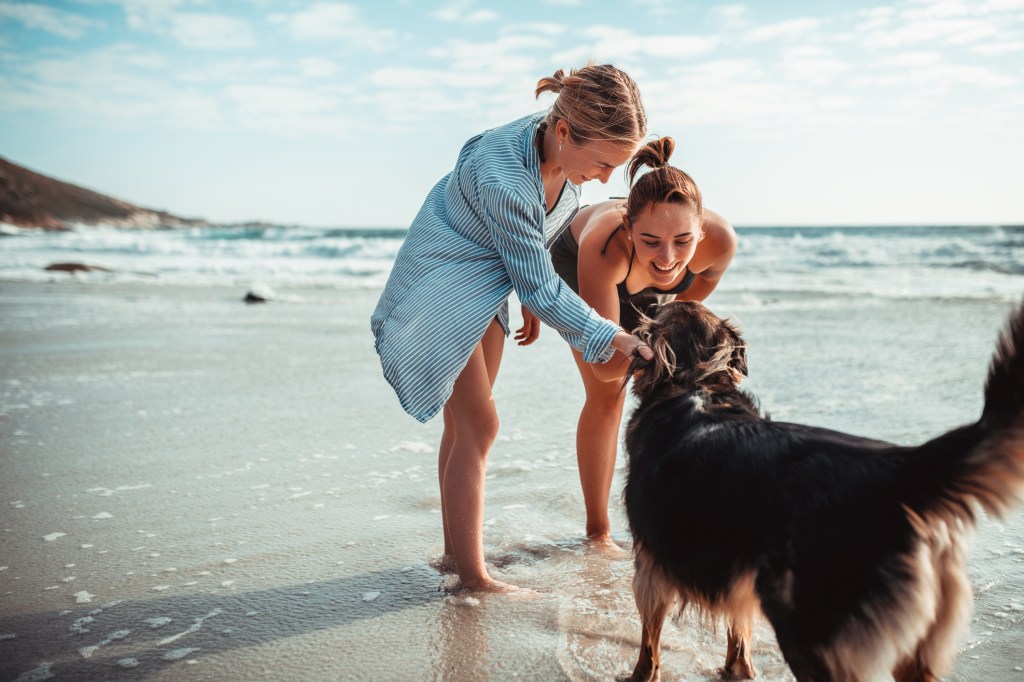
Your dog needs to have an area with shade, water, and ways to cool down. Heat stroke and dehydration can sneak up, even when dogs spend time in the cool water. Bring your dog a bowl and fresh water so they have something clean to drink. Have towels you can get wet and place on your dog if they need to cool off quickly. Consider bringing a cooler with some ice packs, just in case.
Make sure your pup takes breaks once in a while and make sure they drink plenty of water to hydrate! Even if it seems like they’re okay. When pups are having fun, they don’t necessarily realize how hot and tired they are, and that can be very dangerous. Be especially aware of senior dogs, brachycephalic breeds, or other breeds who can’t tolerate warmer weather, as they can be more susceptible to heat.
Prioritize dog sunscreen
Dogs’ fur protects them from sunburns, but even canines benefit from sunscreen. Dogs who are losing hair, have thin hair, or have lighter-colored coats are more at risk, especially if they spend a significant amount of time outside.
Ask your veterinarian about dog sunscreen so you can decide which kind is best for your pup together. Do NOT put human sunscreen on your dog, and avoid any sunscreens with zinc oxide, which can be toxic to canines if ingested. Apply sunscreen to areas with thin fur, such as the snout, face, and ears. Follow your veterinarian’s instructions.
Always supervise and check in.
Even if dogs seem safe and look like they’re having a good time, you must be constantly vigilant, especially if your dog is off-leash. If other dogs are on the beach, it’s a respectful idea to speak with other dog owners and see if they’re comfortable with your pup being off-leash. Your dog should only be off-leash if they are confident in recall commands.
Watch for fights with other dogs, signs of heat stroke, dehydration, and hypothermia, which can happen even in summer if dogs spend too much time in cold water. Additionally, examine their paws for any signs of wounds, as many sharp objects could be on the beach. Until your dog’s collar or harness is connected to their leash again, your eyes should be on them.
Pick the suitable toys
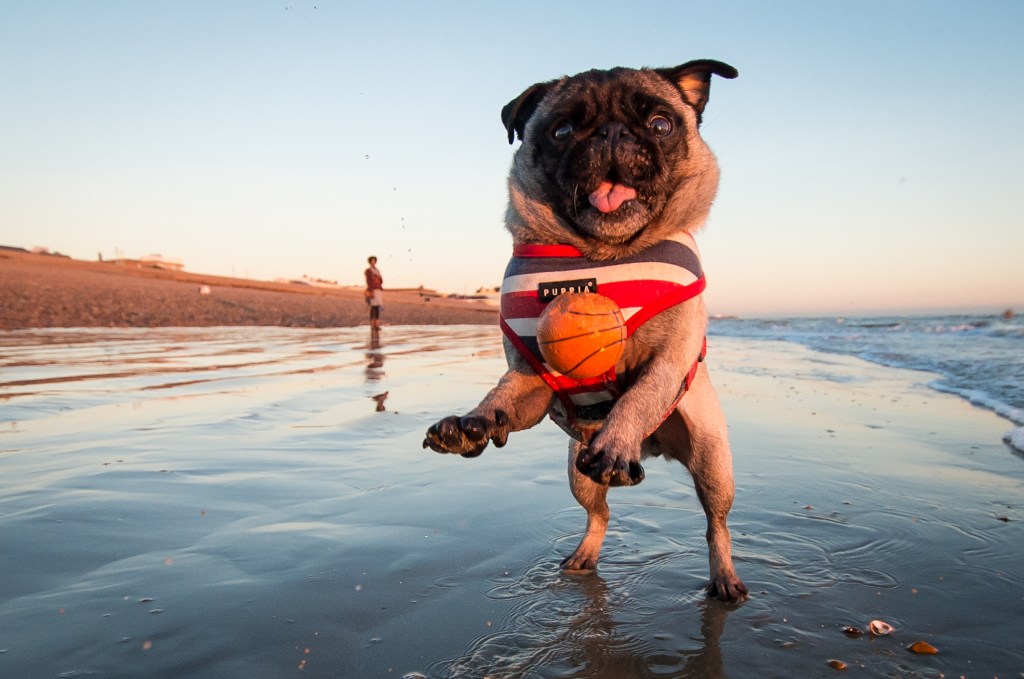
Some veterinarians suggest that tennis balls can contribute to dogs swallowing sand, which can cause gastrointestinal blockages. Instead of tennis balls, cloth toys, or other items that might collect sand more easily, stick to rubber balls, frisbees, and other toys that don’t collect sand as quickly. Your dog will probably still swallow some sand — who doesn’t at the beach? — but it is less likely to be enough to cause problems.
Pack a first-aid kit, leash, and other supplies
First thing first: You need to have a leash. If there is an emergency or incident, you need a way to get your dog under control and move them to safety. Towels are also necessary, as your dog’s fur can trap moisture that turns into steam and overheats their body. Dry your dog once they are out of the water. You should have a first-aid kit for minor injuries and any other supplies you might need for the day, including medication, food, and extra water.
Update tags, microchips, and any other ID

If the worst thing that should happen is that your dog runs off or gets lost, the best way for them to get back home is to have identification. Ensure their collar tags are up-to-date, as well as their microchip information and any other identification they might have. Make sure you have a recent photo of them, too. It’s always important to keep this info updated, but it is essential if they will be in an off-leash environment.
Wash up afterward
Untreated bodies of water can be full of harmful bacteria, parasites, chemicals, and toxic substances that can hurt your dog. Try to at least rinse off your dog quickly after a beach visit if you can, and bathe them more thoroughly after you get home.
It’s also important to keep your dog up to date on leptospirosis and giardia vaccinations. While these vaccines are typically not required, they are highly recommended. Don’t let your pup drink from any lake or river water, no matter how tempting it may be. They can also be exposed to the bacteria through cuts around their legs and paws.
You should pay special attention to the ears, paws, and anywhere where there are folds in the skin, as these are the places parasites and bacteria like to hide the most. Be especially mindful of fresh bodies of water and oceanic occurrences like red tide. This can reduce the chances of your dog getting sick from something they pick up from their fun day.
Worry-free fun at dog-friendly beaches
With these safety tips for dogs at the beach in mind, you can enjoy a worry-free adventure with your pup. Don’t forget to pack your camera! You can also find plenty of other dog-friendly activities to keep you busy all summer long.
